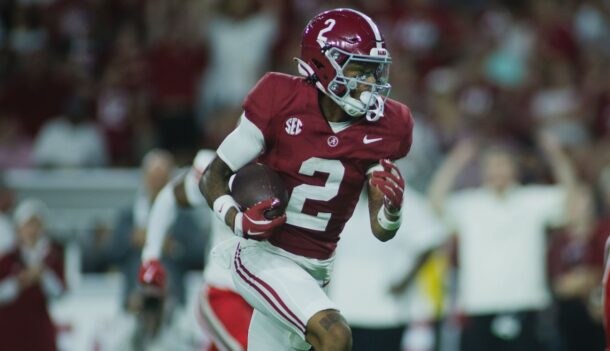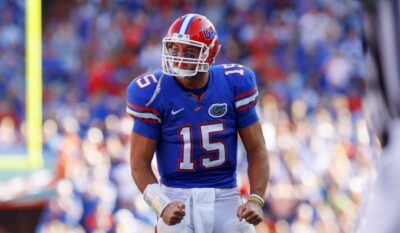
Some of the SEC’s best juniors were faced with a difficult decision last week: Test the waters of the NFL draft or return to school, finish out their career and earn a degree in the process. There’s no right or wrong, as choosing to earn NFL checks over completing a degree or vice versa is a personal decision that differs by player.
While a crop of SEC players decided to turn pro early, a large group opted to return as well. Which of those players stands to gain the most in their final year of eligibility, and which could see their stock decline?
MOST TO GAIN
- QB Chad Kelly, Ole Miss: We’ve come a long way from the spring, when coach Hugh Freeze essentially handcuffed himself to Kelly to ensure that the previously-troubled signal-caller didn’t do anything dumb. Kelly became the third 4,000-yard passer in SEC history in 2015. Sure, the Rebels are losing Laquon Treadwell and Cody Core, but a number of high-end pass-catchers return. With a good season on and off the field, Kelly could be a first-round pick in 2017.
- LBs Tim Williams and Reuben Foster, Alabama: Both of these players have something to prove as a three-down player. Williams quite possibly is the most productive pass rusher in the nation on a per-snap basis. If he can get better against the run and in coverage, he’s a first-round pick in the 2017 NFL draft. Foster long has held a reputation as a head-hunter but is slowly morphing into a player with more refined technique. The Alabama front seven will count on both of them to fully bloom in 2016.
- DE Carl Lawson, Auburn: Lawson has essentially played a half-season (at less than 100 percent) since his strong freshman campaign in 2013. NFL teams already like his upside. But if he can stay healthy in 2016 and be among the SEC leaders in sacks, pro teams will forget all about the torn ACL and hip injury that cost him so much time.
MOST TO LOSE
- DE Jonathan Allen, Alabama: Several mock drafts, including the first by ESPN’s Mel Kiper Jr., projected Allen as a first-round pick. Allen finished second in the SEC with 12.0 sacks. It’s difficult to imagine him doing anything more than that as a senior. The upside is limited — maybe Allen can become a sure-thing first-round pick with an excellent season — while the downside much bigger. Fortunately for Allen, insurance policies are so pervasive that he’ll still get a payday even if he gets injured. He’s much more protected than someone in his position would’ve been a decade ago.
- WR Josh Reynolds, Texas A&M: In the last two years, Reynolds caught 103 passes for 1,749 yards and 18 touchdowns for the Aggies. Both surprisingly dependable and a big-play threat at 6-foot-4, Reynolds won’t wow you with first-round athleticism. But it’s difficult to foresee him getting much better in 2016. And with the team’s offense — especially at the quarterback position — in such flux, it’s possible his production could decline in 2016.
An itinerant journalist, Christopher has moved between states 11 times in seven years. Formally an injury-prone Division I 800-meter specialist, he now wanders the Rockies in search of high peaks.







